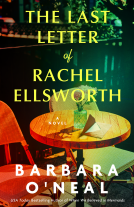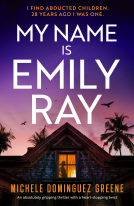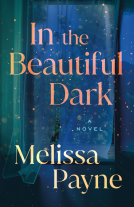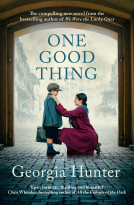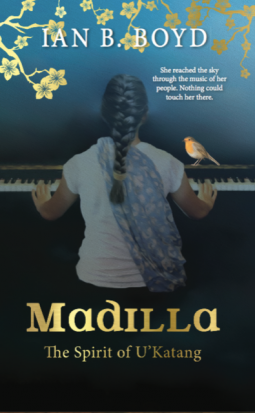
Madilla: The Spirit of U'Katang
by Ian B. Boyd
This title was previously available on NetGalley and is now archived.
Send NetGalley books directly to your Kindle or Kindle app
1
To read on a Kindle or Kindle app, please add kindle@netgalley.com as an approved email address to receive files in your Amazon account. Click here for step-by-step instructions.
2
Also find your Kindle email address within your Amazon account, and enter it here.
Pub Date 1 Mar 2018 | Archive Date 5 Aug 2018
Talking about this book? Use #Madilla:theSpiritOfU'katang #NetGalley. More hashtag tips!
Description
From her very first touch of the piano keys, Madilla feels a strange tingle of energy running through her fingers. In defiance of the customs of her people, she connects through the spirit of her music with a wild mountain sparrow that shows her the freedom of wings and an endless blue sky.
Her piano becomes Madilla's only escape from the violent atrocities of an isolated and forgotten mountain village, poisoned by centuries of military occupation. But her family has no escape. Tormented by lust and hatred, her uncle succumbs to the ways of the soldiers, igniting an even greater evil lurking within his spirit.
Recognising the confusion of her Mama's unshakable beliefs, Madilla searches for her own truth. What she learns is that the magic she feels through her piano is only the beginning.
Advance Praise
When I first started to read “Madilla: the Spirit of U’Katang”, I wasn’t really sure if I was reading a historical novel, a cultural commentary or a fantasy story. In the end, it turned out to be the latter with elements of cultural commentary on gender roles and religious repression.
Benedict and I argued for a while about what part of the world the story was set; based on some of the names I thought it was somewhere in India or Sri Lanka, while he felt it was New Zealand or Islander. We were both wrong. Ian B. Boyd has created the fictitious land of Almaq, which seems to be somewhere around India or Pakistan, or even Afganistan. The story centers around a tiny, backwater village in Almaq known as Kirra, which is under martial law.
As an aside, one criticism I have is while the country of Almaq is fictional, the names of the characters seem very mixed in heritage. I found this somewhat distracting when a name just didn’t feel a comfortable fit into the rest of the culture, which seems to be based on India. The men’s names appear to be an assortment of some Middle Eastern and some Maori. Of course, the rules about names can be however the author chooses, but it rang to me as a little inconsistent.
The story is presented in the first person from the perspective of Madilla, a girl who lives in Kirra. We pick up from when she is six years old, where we start to learn some of the cultural myths and taboos of her village as told by one of the village elders . We follow Madilla’s experiences through to the age of around twelve.
One of the customs in Madilla’s world is that women are not allowed to play music, a restriction that she quails against shortly after her father comes across a piano which he gives to her older brother, Taormo. In their isolated village, they have no idea what a piano is or how it makes music, and her brother soon gets frustrated with it. Madilla, however, finds that she has a natural affinity for creating music, guided by her connection to her religion.
Religion strongly underpins the story; the journey of Madilla is a journey of her understanding herself and her religion. Her desire for the spiritual release she discovers with the piano puts her conflict with her village’s cultural norms. She falls foul of her uncle Marlong and the occupying soldiers and is taken away from her tiny village to the nation’s capital. There she learns more of both her own religion and her country’s heritage and history as she tries to get back to Kirra and her beloved Mama.
While Madilla’s gender is culturally important for the story, Boyd hasn’t imposed gender stereotypes on her behavior. He handles the young woman’s viewpoint and experiences sensitively as she matures, and it never feels awkward or contrived.
The story, however, moves very slowly and somewhat ponderously. Boyd has created a very rich backstory and history, but you become lost in it, even with the substantial glossary of invented terms at the beginning of the book. I looked at the glossary briefly as I started to read, but I didn’t refer back to it again. I find that glossaries are often a distraction and should best be avoided. A story needs to stand on its own without a glossary to explain what is going on.
There are situations towards the end of the story when Madilla is exposed to living outside her isolated village where she encounters modern technology for the first time. She rapidly becomes at ease with these new wonders, and they become mundane too quickly. She had never encountered electricity before yet seems quite comfortable with traffic lights and other technology within (seemingly) a few days.
“Madilla” never really decides what genre it fits into. There are elements of fantasy and elements of social commentary on the repression of women. While fantasy and sci-fi are often also a social commentary, here it came across a bit preachy and didn’t really provide any further insight into the spiritual journey that Madilla follows.
It was noticeable enough that I looked at Ian B. Boyd’s home page after having read the book where I discovered that he had recently visited India. It feels that some of the cultural revelations the author observed there were squeezed into the narrative.
Despite the criticisms, I certainly have a strong feeling of immersion in the world and its customs and dangers. The author shapes the world of “Madilla” very vividly in the mind’s eye of the reader. The book is not without its flaws, but I would certainly encourage the author to continue to write and try to refine his craft
Reviewed by: Jane Stockwell
Available Editions
| ISBN | 9780648239451 |
| PRICE | US$4.99 (USD) |
Links
Featured Reviews
I obtained Madilla: The Spirit of U'Katang by Ian B. Boyd from Net Galley because the book deals with a girl who plays the piano. I have an interest in female protagonists who are involved in any of the arts. The summary implies very adverse circumstances for this young musician. I don't believe this book was written with a teen audience in mind. There are mature themes and mature content.
The author states that Madilla takes place in an imaginary country. There are linguistic and cultural similarities to real places. At first, I wondered why Boyd didn't situate it in a known location. The village described is under military occupation. It could have been in a number of different nations, but it occurred to me that Boyd wants us to realize that this type of story could apply to all of them. He shows the impact of occupation on everyone in that village.
Madilla's problem with a ban on women participating in music wasn't imposed by the occupiers. This is a traditional taboo in her own culture which she defies. I could identify with her since I came up against some serious opposition to women singing as a child in the Jewish Orthodox community.
Although I knew of religious traditions where music isn't allowed at all, I wasn't aware of specific cultural proscriptions against women playing or even touching musical instruments. So I ran a search on the topic. As a result, I discovered a very illuminating blog article by Josh Middleton dealing with this prohibition as a cross-cultural issue . There are still prejudices against women playing certain musical instruments. Middleton points out that in contemporary pop music, there are few highly regarded female guitarists.
I consider this a feminist book. Both men and women have hard lives in Madilla, but there is a strong focus on the problems of women, and it seems to me that the most sympathetic characters are female.
The first ten percent of Madilla establishes the character and context. I wasn't bothered by this, and considered the entire novel well-written. Some readers may experience the book as slow-paced.
Madilla has been shelved as fantasy on Goodreads. It isn't epic fantasy., but neither is it urban fantasy. So readers may feel genre confusion. Others may identify the book with magic realism. The category to which Madilla belongs isn't obvious at the outset. This may be problematic for those who really want to know what sort of book they're reading. It isn't clear at the beginning whether Madilla is paranormally gifted or highly imaginative. Let's just say that by the end of the novel you will definitely know the answer to that question.
Madilla is not a book for people who are uncomfortable with uncertainty. Yet if you're willing to deal with fantasy/magical realism and you love protagonists who are musicians, you may enjoy this book as much as I did.
Readers who liked this book also liked:
Michelle Dominguez Greene
General Fiction (Adult), Mystery & Thrillers, True Crime
Christine Nolfi
General Fiction (Adult), Romance, Women's Fiction


